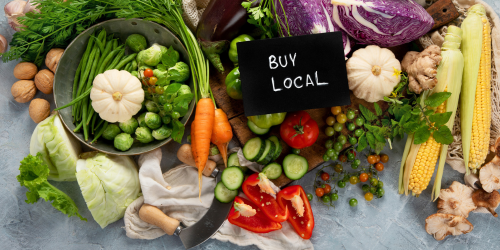Recently, the government announced a 5% Sales and Services Tax (SST) on selected imported food items, effective 1st July 2025. This sparked concern among many Malaysians about what they’ll be able to afford or consume moving forward.
Before panic sets in, let’s clarify the situation. Essential daily items such as rice, refined sugar, cooking oil, books, and medicines will remain tax-free.
What Imported Goods Will Be Taxed Starting 1st July?
According to a spokesperson from the Ministry of Finance (MOF), the 5% SST only applies to imported goods, primarily imported fruits, not local ones. The explanation is simple: locally grown fruits are not considered “imported” or “manufactured” under customs definitions, so they are exempt from this new tax.
This tax policy is part of an effort to protect local agriculture, reduce import dependency, and encourage support for domestic farmers and food producers.
Examples of Imported Foods That Will Be Taxed (5% SST)
Imported Fruits
Any fruit grown outside Malaysia will be taxed, including:
- Bananas (Cavendish, lady’s finger, chestnut)
- Pineapples
- Rambutan
- Longan
- Lychee
- Langsat
- Jackfruit
- Tamarind
- Starfruit
Premium Imported Seafood
- King crab
- Salmon
- Cod
Luxury & Specialty Foods
- Truffle mushrooms
Other Processed Foods
- Raw (unrefined) sugar
How Can You Cope With This Change?
It’s all about making smarter choices and supporting local producers:
Switch to local alternatives:

Instead of imported bananas or pineapples, try Malaysian-grown pisang berangan, honey pineapples (nanas madu), or local jackfruit (nangka). These are equally nutritious, often fresher, and now more affordable.
Support local farmers:

Buying Malaysian produce helps sustain the local economy and reduces your carbon footprint.
Buy seasonal produce:

Local fruits in season are cheaper and taste better and high nutritional value!
Limit premium imports:
Save high-end imports like salmon or truffle mushrooms for occasional treats rather than everyday essentials.
What About Fruits Malaysia Doesn’t Produce?
Of course, certain fruits like apples, mandarin oranges, grapes, and kiwis can’t be grown locally in large quantities due to climate limitations. These items may still be worth purchasing occasionally, but now with more conscious spending.
While the 5% tax may seem like a burden, it’s actually an opportunity for Malaysians to reconnect with local food culture, eat fresh, and support homegrown industries.
Choosing local is not only budget-friendly, it’s also a step toward a more sustainable and resilient food system.

